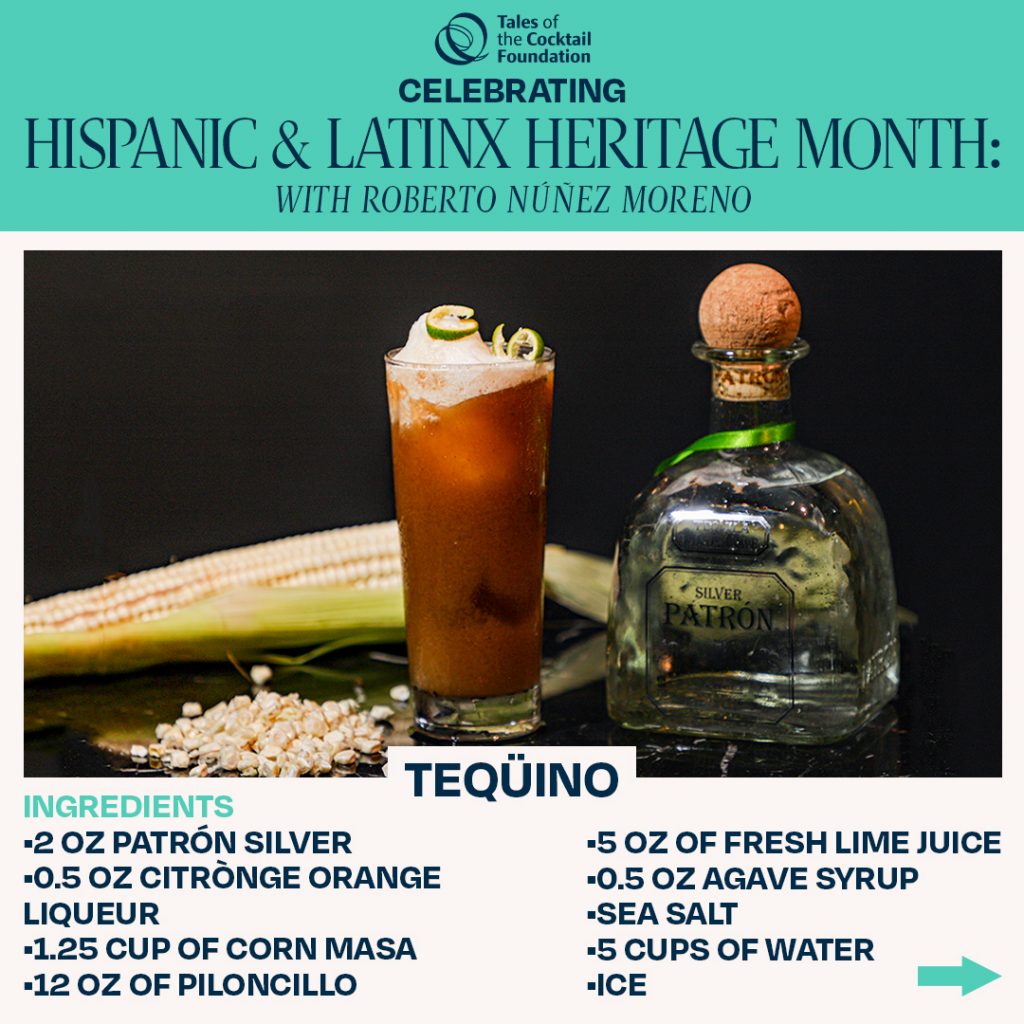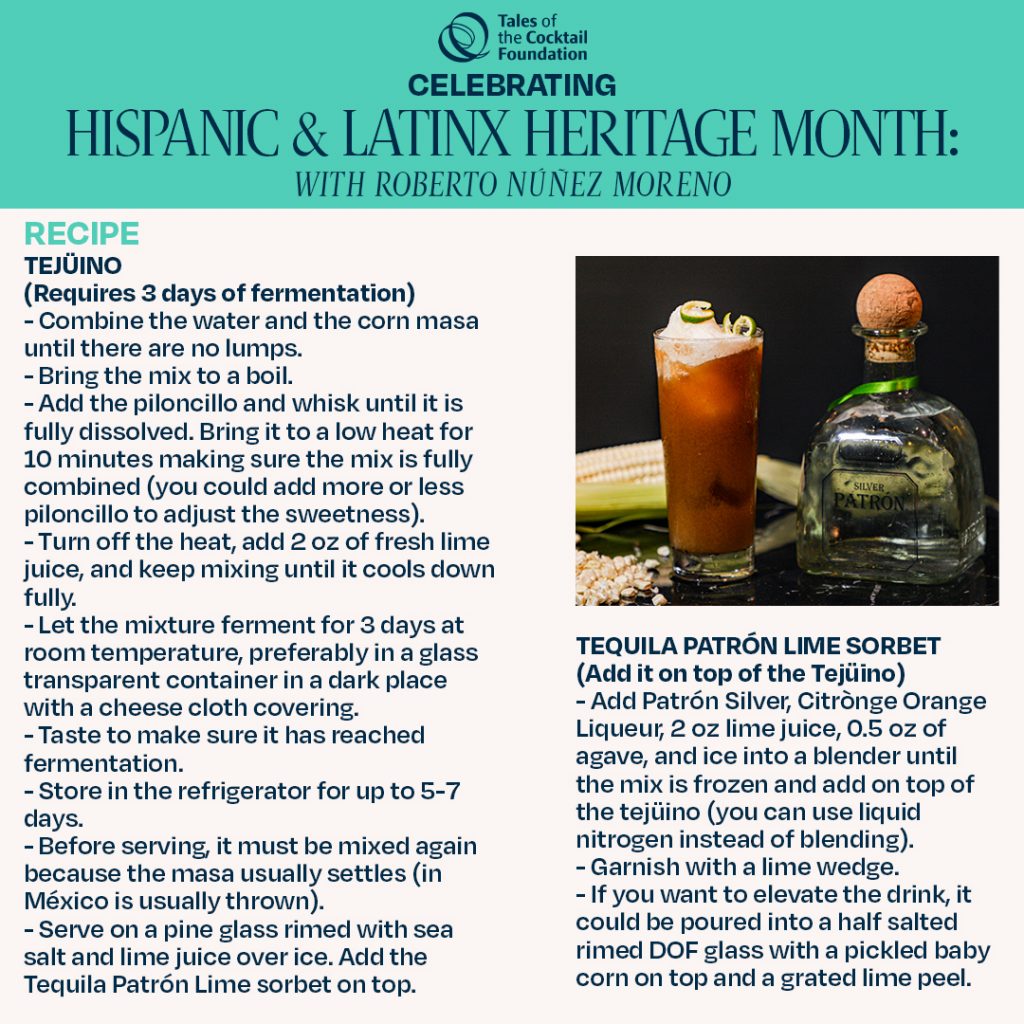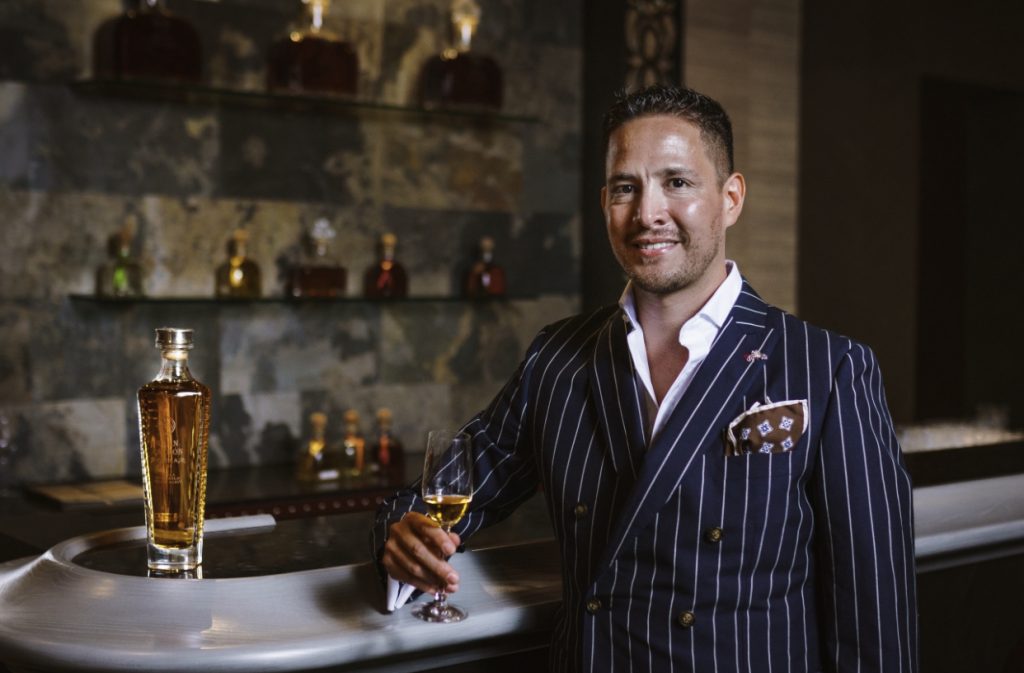Behind every successful bar there is a hardworking Latino. Try to imagine what our industry would be without Latinos. Most bars and restaurants in this country have a Latino bar back, a Latino busser, a Latino cook, a Latino dishwasher, and sometimes Latino servers, bartenders, managers, or chefs. Even if there is a restaurant with no Latino staff, it most likely offers beer, rum, tequila, mezcal, pisco, cachaça, wine, coffee, or some type of produce on their menu made by the hardworking people somewhere in Latin-America, or from the hands of Latinos working in the fields of California, or in Nebraska’s meat packing industry.
The U.S. Department of Labor reported in 2021 that 43% of all farming, fishing, and forestry were made by Latinos. That is almost half the total amount of the vegetables and seafood produced and consumed in this country. This statistic obviously increases when factoring in imported products. Latinos represent 27.3% of all U.S. food preparation and serving in 2021. This would make about 3 out 10 industry workers Latino, and that is not counting Latinos in cleaning or maintenance roles.
Ironically, no matter how big the contribution of Latin America is in the bar industry, Latinos are not always recognized. Latinos are over-represented in lower-paying roles and very under-represented in higher income roles. Since I first started working in the U.S., I wondered why most of my coworkers were always Latinos, yet I almost never had a Latino boss. You could argue this is a matter of education, but the only people I have met in bars who hold master’s degrees were Latinos. Could it be a lack of experience? Unlikely, as Latinos are some of the most loyal employees, working at times in places for decades without any promotion. In my opinion, the barrier is double: legal and personal. From one side, there is the legal issue. A large percentage of Latinos are undocumented. The lack of legal status prevents them from applying or obtaining higher paying roles. From another side, there is the personal culture barrier. Immigrating is not easy for anyone. But it is especially difficult when you do it illegally. Imagine never having traveled before, and the first time you leave your town, you are leaving for the rest of your life. Or when you didn’t finish learning your own language, and now you must learn and speak another one. Imagine you are arriving in an unfamiliar place, and there is no one to give you a hand. Work is already hard, and some personalities can’t handle certain types of work. As an immigrant, you don’t have the luxury to choose your career, and the choices offered to you are often minimal. We take what we can get and make our way up from there. Undocumented immigrants go to work risking their stay in the U.S., knowing that in their home countries, their family heavily depends on them for survival. The language and the cultural and economic differences make it hard for immigrants to mingle into mainstream American culture. As any person, we would rather stay with the people who understand us and where we feel safe. The challenge for us as Latinos is to overcome those barriers; gain legal status, and blend with the culture while honoring our roots.
I’ve been immigrating since I was three years old. I have lived in four different countries and 12 different cities. I was privileged enough to know what it meant to change places and careers before moving to the U.S. When I arrived in the States, I knew basic English, I could still see my family, and nobody depended on me. Even though it wasn’t always easy, I was one of the fortunate ones. In today’s environment, I can’t imagine what difficulties other immigrating Latinos have faced. These people are my coworkers performing the same job and fulfilling the same responsibilities as me. However, despite all the adverse circumstances, we know how to succeed.
Latinos deserve more recognition. In a social media world where there are top ranking lists of every topic imaginable and in the industry where its festivals and awards are valued more every day, I wish there was more of a Latino presence. 50% of our food passes through Latino hands, and 30% of our drinks are served by Latinos. We are part of the performance of hardworking people, but we rarely make it to the stage. Latino workers are often times the unspoken supporters behind those who win the prizes and accolades. However, we believe that we now have an open seat for us at the big table, and it’s time for us to grab it.
Latin culture is especially warm. There is rhythm, flavor, simplicity, passion, history, appreciation, and hard work running in our veins. We work in hospitality and our culture is hospitality. We love people. We love food. We love drinks. Latinos are natural at making you feel like family. For us, eating in our community is not just a necessity but a religion. Around the table, we celebrate the best moments together, and cure our wounds of the worst moments together. Yes, we do have some of the most amazing flavors in the world. What would a world be without margaritas, mojitos, piñas-coladas, palomas, Cubas-libres, y coquitos? Imagine living without tacos and empanadas, without ceviche, guacamole, tamales, arepas, arroz con gandules or pao de queijo. The kitchens of the world would be different with no coffee, chocolate, limes, chili, or potatoes. Latin America has some of the best ingredients in the world, but the secret ingredient is los Latinos.



ABOUT ROBERTO NÚÑEZ MORENO
Roberto´s life is a story of travel and immigration. He was born in Guadalajara, Jalisco, México. He lived in 4 different cities of México before immigrating to Europe. His studies brought him to different cities in Spain and Italy but always went back to “tequilaland”, Guadalajara.
His family was involved in the restaurant business, and he became familiar with the industry at a very young age. Early on, he decided to study to become a Catholic Priest. In the seminary, he had to work in the kitchen, as a server, and even making drinks at the same time he completed his studies. He graduated with a first master’s degree in philosophy and worked as a professor and educator for several years before deciding to leave that life.
To make a living after the seminary, Roberto started working as an insurance agent while obtaining a second master’s degree in neurolinguistic programming. His adventurous spirit and desire to improve brought him to immigrate to the USA. As an immigrant, the only industry who welcomed him was the service industry. His multicultural experience and the years cooking and serving tables in the seminary came very handy. He worked his way up in bars and restaurants of Boston for seven years.
In 2021 while working at Faces Brewing Co., he entered Patrón Perfectionists becoming a national finalist. Since then, he started a series of collaborations with the brand that brought him to officially work with Tequila Patrón as their National Brand Ambassador.
Instagram:
@roberto.nunez.moreno
@academia_patron





